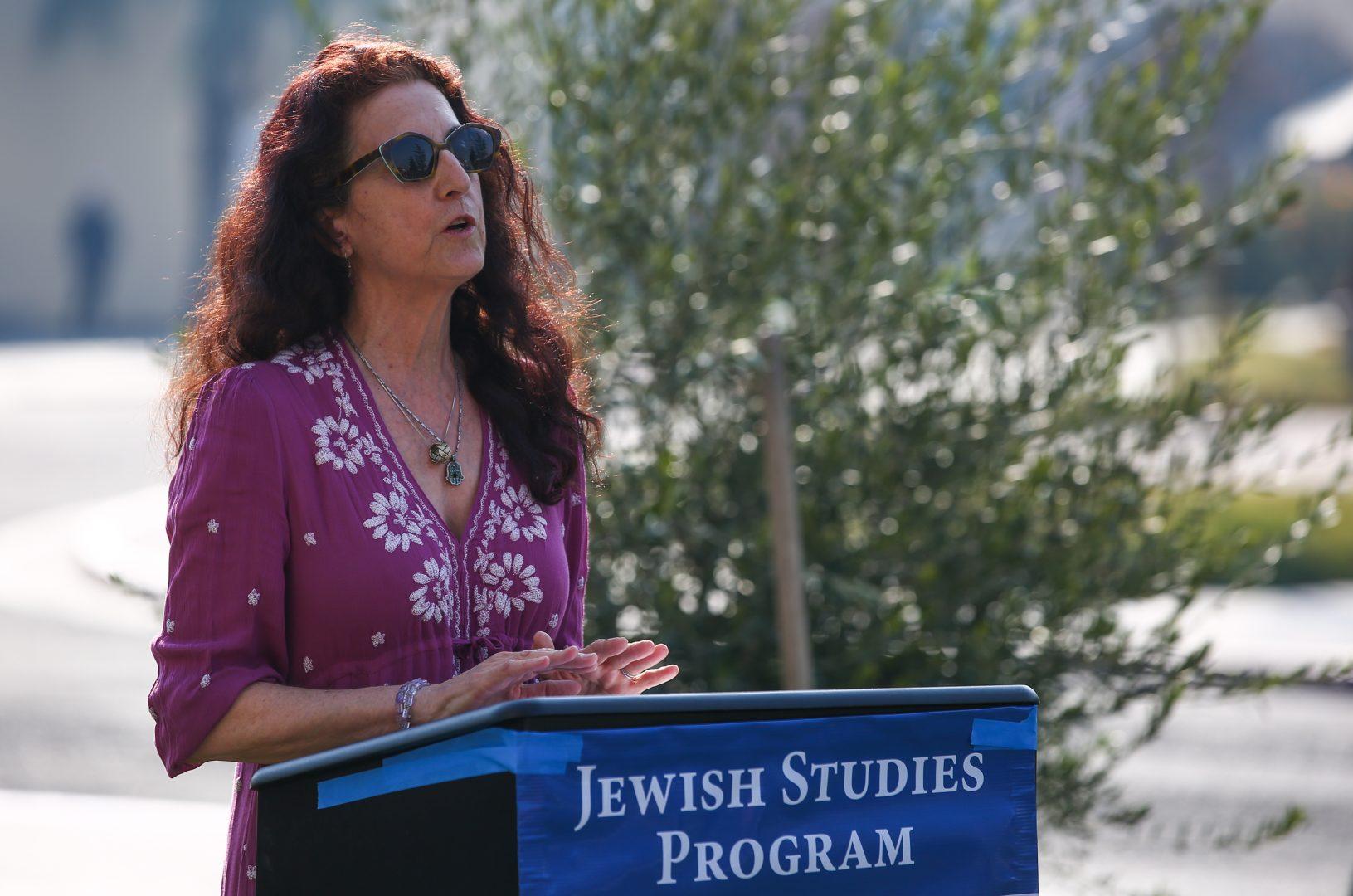The Jewish Studies program honored a long-standing Jewish tradition on Wednesday by celebrating new beginnings within nature and the university program.
Tu B’Shevat, New Year for the Trees, is a Jewish holiday dedicated to the growth of the fruit trees in Israel. The holiday is meant to celebrate a new growing season, the environment and the fruits of Israel.
It was the first time the holiday was celebrated at Fresno State. Five olive trees were planted outside the Social Sciences Building during the event.
Dr. Jill Fields, founding coordinator of the Jewish Studies program, said the olive trees not only celebrate the environment, but also help strengthen it.
“I do feel compelled on this day dedicated to remembering the importance of our natural environment and our responsibility for protecting it for future generations, that I, unfortunately, have to point out that the air quality today is rather terrible,” Fields said. “So the five trees that Jewish Studies is dedicating today will make this small spot a place where we can breathe easier.”
Fields added that while the day was meant to celebrate nature, it must also serve as a reminder of how much mankind has to do in order to protect the nature they were celebrating.
Two rabbis were on hand to bless the trees and explain their significance.
Rabbi Rick Winer of Temple Beth Israel used a rabbinic tale to illustrate the importance of trees and the parallels they have, literally and figuratively, to nature and learning.
Rabbi Levy Zirkind of Chabad of Fresno used his time to explain the significance of the olive and distinguish between the Reformed and the Chabad traditions.
“It was just great to have both rabbis together. That doesn’t happen all the time that we have the Reformed rabbi and the Chabad rabbi,” Fields said. “They both have their unique approaches, and it’s great to have a variety of responses to this holiday.”
Four of the five trees were planted before the proceedings began. The final tree was left to be planted by the attendees. Shovels were passed around, and adults and children took turns shoveling dirt around the tree.
Fields has played a large role over the past few years in the rise of the Jewish Studies program on campus, which became available as a minor this semester.
In her opening speech, Dr. Michelle DenBeste, dean of the College of Social Sciences, said it was important to celebrate the new program.
“It seems appropriate today that a holiday that celebrates trees and new beginnings is also a moment that we can celebrate our Jewish Studies program,” DenBeste said. “As many of you know, it is a thriving program. And thanks to the tireless efforts of Dr. Fields and some others of you, we now have a minor in Jewish Studies.”
Fields said it was encouraging to see how much success the program has had in advancing itself within a campus community that does not have a very large Jewish population.
“Students of all backgrounds have been interested in learning more about the Jewish experience, and it’s wonderful, just wonderful,” Fields said.
One such student was Sergio Estrada, who is not practicing Judaism himself, but is part of a Jewish Studies course. He said extra credit incentivized him to attend, but he was walking away feeling all the more intrigued by Jewish culture.
“[Jewish] culture is a very rich culture. There is so much to learn from it,” Estrada said.




